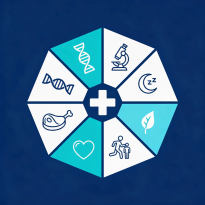Be Cautious When Following Health Advice
Introduction
In today’s world, it’s common to come across individuals who claim to have discovered life-changing health practices. These advocates are often medical professionals, highly educated individuals, or influential figures with a large following in clinical settings. However, it’s essential to approach such advice with caution, as what works for one person may not be suitable for another.
**The Influence of Prominent Health Figures**
One noteworthy example is a Korean herbalist who has gained significant attention, publishing books and building a strong presence as an influencer. In a recent video, this herbalist made a bold statement, declaring coffee to be the worst possible food. Such strong opinions can be thought-provoking, but they also raise concerns. While coffee can indeed be harmful to some, for others, it offers substantial benefits, such as antioxidant and anti-cancer properties.
**Historical Perspectives on Health Practices**
Throughout history, certain diets and practices have always had their champions. Whether it’s advocating for strict vegetarianism, promoting meat consumption, or supporting acupuncture, there have always been individuals who swear by these methods. However, these approaches often prove effective only for specific groups of people. The idea that there is a universal solution—be it a diet, exercise regimen, or lifestyle—is a myth. The truth is that health is highly individual, and each person must find what works best for them.
**The Concept of Eight Constitutional Medicine**
One approach that has gained attention for recognizing individual differences is the Eight Constitutional Medicine. This system suggests that people have different constitutions, which should guide their dietary and lifestyle choices. However, it’s important to note that even this method is not a panacea. The question of whether strictly following its dietary recommendations is universally beneficial remains open. Nevertheless, in cases of illness, it may be wise to consider these guidelines more carefully.
**Current Health Trends: Proceed with Caution**
In recent years, diets such as raw food and ketogenic have become increasingly popular. While these diets may offer benefits to some, it is crucial to approach them with moderation. The advantages of cooked food and carbohydrate consumption, which have been part of human diets for millennia, should not be overlooked. Balance is key, and extreme dietary practices can lead to unintended consequences.
**Critical Evaluation of Health Advice**
As I plan to review this herbalist’s book in the future, I encourage readers to approach it with a critical mindset. While the book may contain valuable insights, it’s important to remember that it represents the perspective of a single individual. Herbal medicine, although often associated with oriental medicine, is actually part of the pharmacy curriculum, not oriental medicine itself, and the curriculum is not overseen by oriental medicine schools. This distinction is significant when evaluating the advice offered by practitioners in this field.
**Conclusion**
In conclusion, while health advice from prominent figures can be compelling, it’s essential to recognize that there is no one-size-fits-all solution. What works for one person may not work for another, and it’s crucial to find a balanced approach that suits your individual needs. Always approach health trends and advice with a critical eye, and remember that moderation is key to maintaining long-term well-being.
For the original Korean text, visit here.
If you’re curious about the basics of traditional Korean medicine and health, read the following article:
What Your Sleeping Position Says About Your Health
Learn Why Studying JangSang Medicine is Important.
Frequently Asked but Silly Questions (Foods Good for the Liver??)
Thank you for reading.

